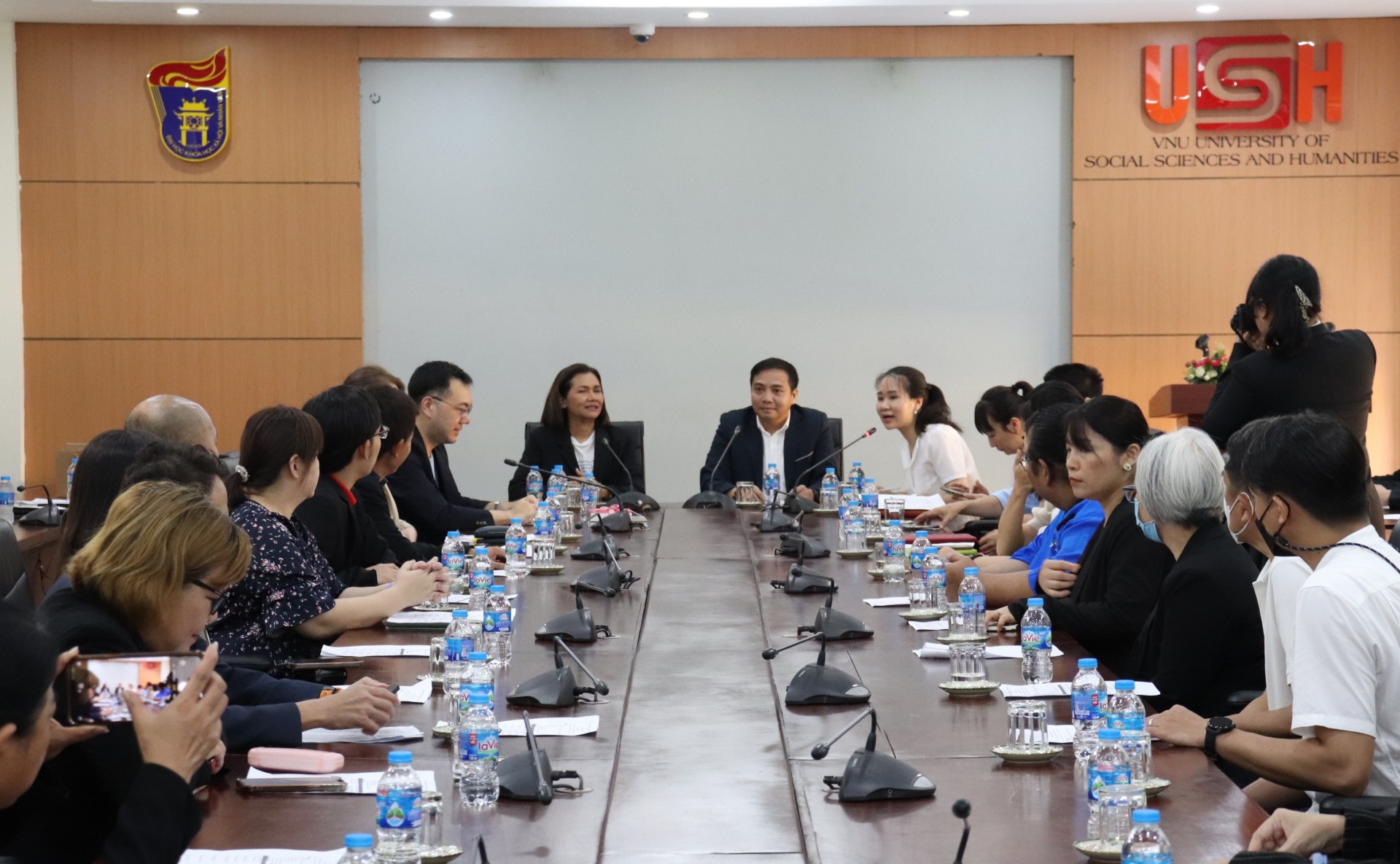
Attending the meeting were Associate Professor, Dr. Dao Thanh Truong - Vice Principal of the school, representatives of the Department of Cooperation and Development, the Department of Scientific Research, the Department of Training and many faculties and departments of the University of Social Sciences and Humanities..
Speaking at the meeting, Associate Professor, Dr. Dao Thanh Truong said that the University of Social Sciences and Humanities has a long tradition and a leading position in research and training in social sciences and humanities in Vietnam. It is a university established by the decision of President Ho Chi Minh. The University of Social Sciences and Humanities is implementing its strategic development goals towards a research university, continuing to affirm its leading position in research and training in social sciences and humanities in Vietnam, striving to bring the university into the group of 150 leading universities in Asia by 2025.
In the past year, Hanoi National University has recognized 01 key research center and 04 strong research groups of the University of Social Sciences and Humanities as strong research groups at the level of Hanoi National University. This is the recognition and investment of VNU in the scientific and technological research activities of VNU-USSH - a leading university in training high-quality, highly qualified human resources. In particular, the Institute of Policy and Management (IPAM) under the University of Social Sciences and Humanities continues to be recognized as a key research center at the level of Hanoi National University.
Vice Principal Dao Thanh Truong emphasized: Cooperation with international universities is a strong trend of the school to contribute to the goal of becoming an advanced research university in the region and the world. In particular, cooperation with universities in Thailand is always an important goal of the school in training and scientific research.
Thammasat University and the University of Social Sciences and Humanities have signed many MOUs over the years and have achieved many successes, especially in aspects such as student and lecturer exchange and scientific research. The newly signed MOU is expected to lay the foundation to elevate the cooperative relationship between the two universities to a new level.
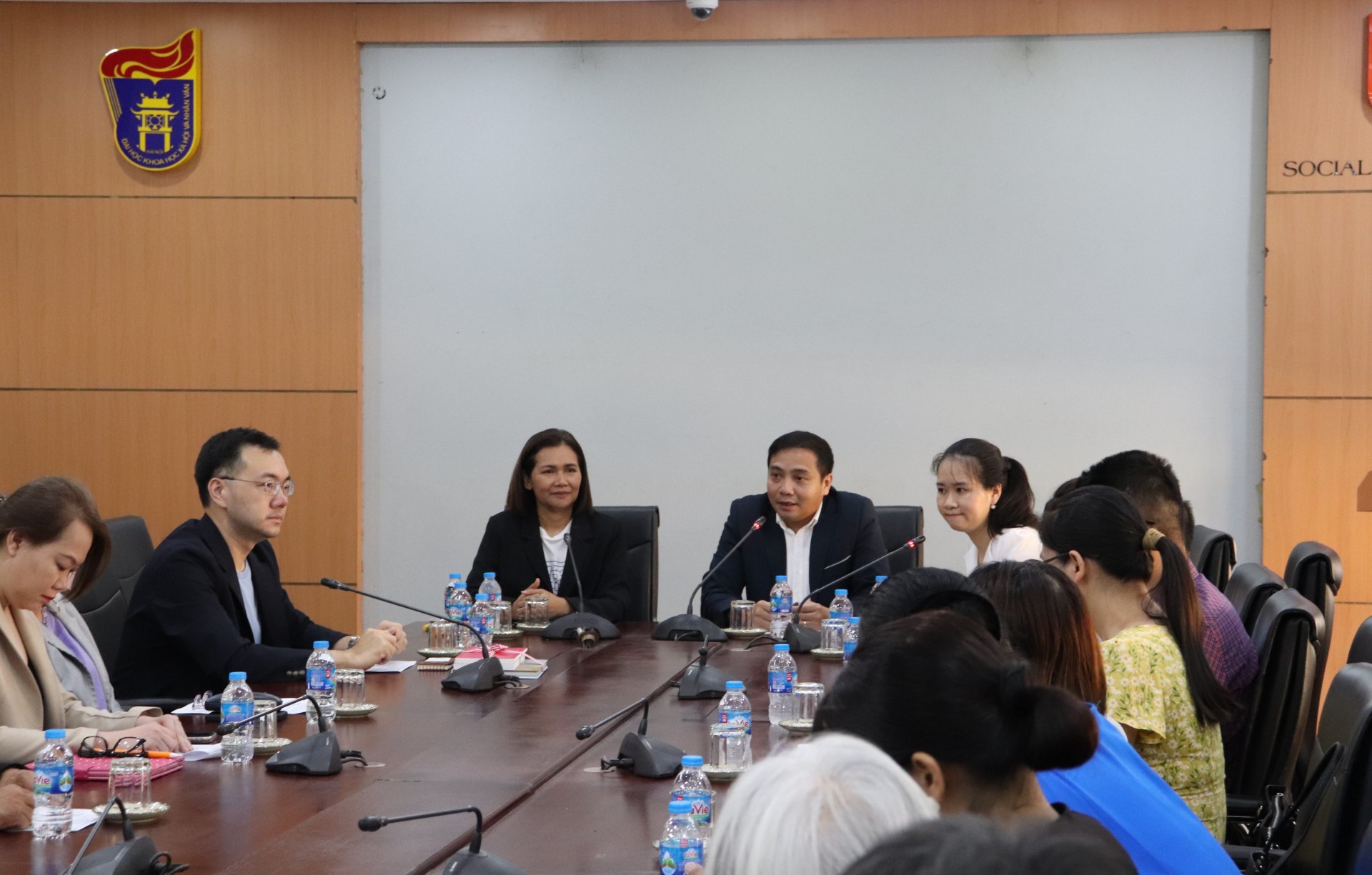
Ms. Saifon Su-Indramedhi - Principal of the School of Interdisciplinary Sciences, Thammasat University shared about cooperation opportunities between the two schools.
Principal Saifon Su-Indramedhi shared: Thammasat University's School of Interdisciplinary Sciences has 4 campuses and a total of 26 faculties. The school has been established and developed for 25 years, with a total of 50 teachers, 35 specialists and more than 1,500 students. Thammasat University's School of Interdisciplinary Sciences always develops and builds new, suitable and up-to-date study programs and is the only school in Thailand that has a program on Women and Gender.
Within the framework of cooperation and student exchange between the two universities, the School of Interdisciplinary Sciences, Thammasat University supports students to exchange and train at many levels, especially the Data Science program, which is a new program with high applicability due to the common demand worldwide and is welcomed by many students in Thailand. President Saifon Su-Indramedhi believes that this visit to the University of Social Sciences and Humanities is not only a student exchange but also an opportunity for both sides to learn and build a stronger relationship, moving towards working together to draft a practical and effective MOU in the future.
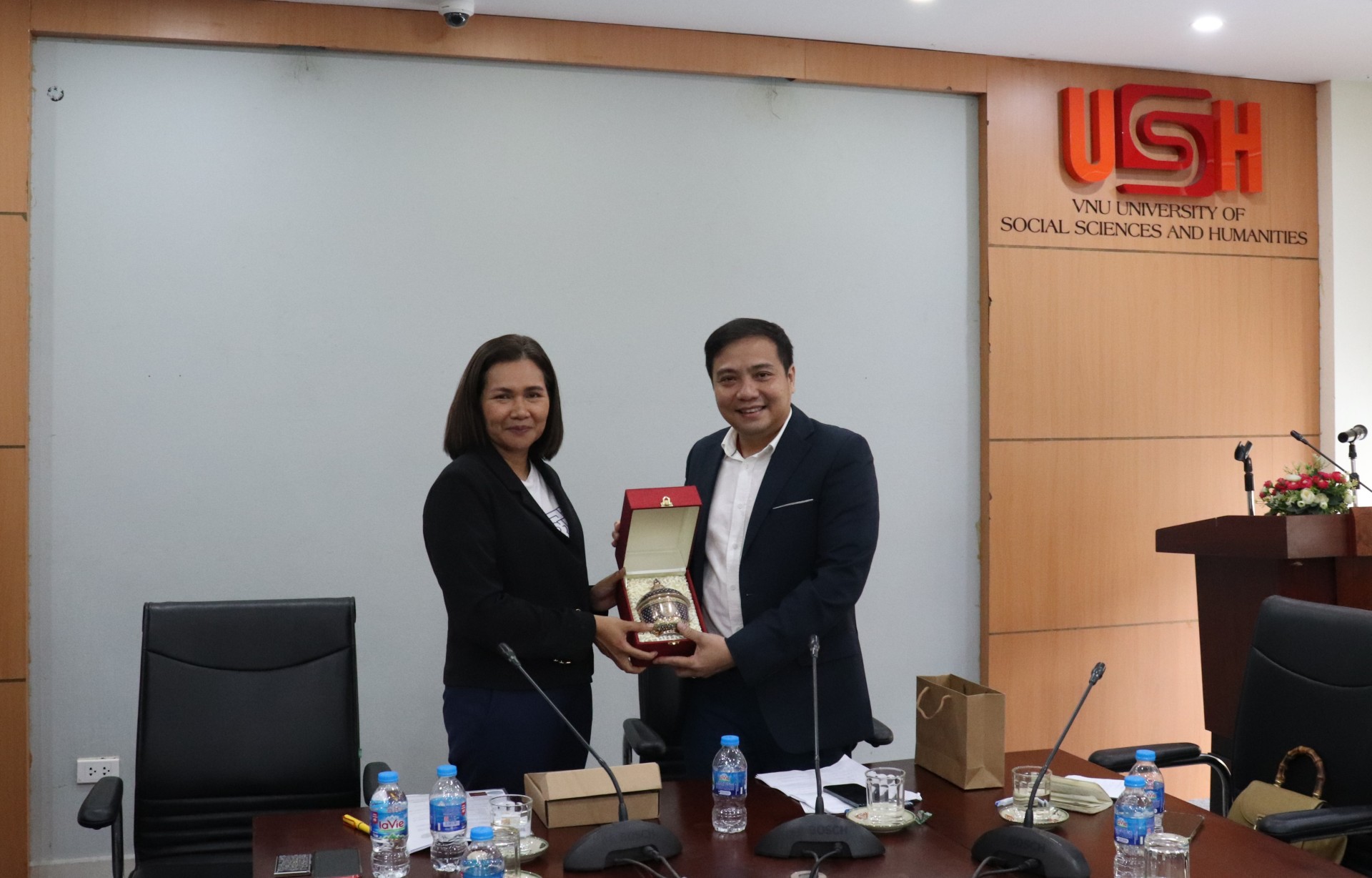
At the end of the working session, Vice Principal Dao Thanh Truong invited students from the School of Interdisciplinary Sciences, Thammasat University, Thailand to participate in the short-term course (Summer Course) in August and September. The two sides agreed on a number of terms that need to be further considered in the working sessions and towards building incentives and scholarships for students of the two schools, serving the short-term courses in the present and the future.
Other images of the working session
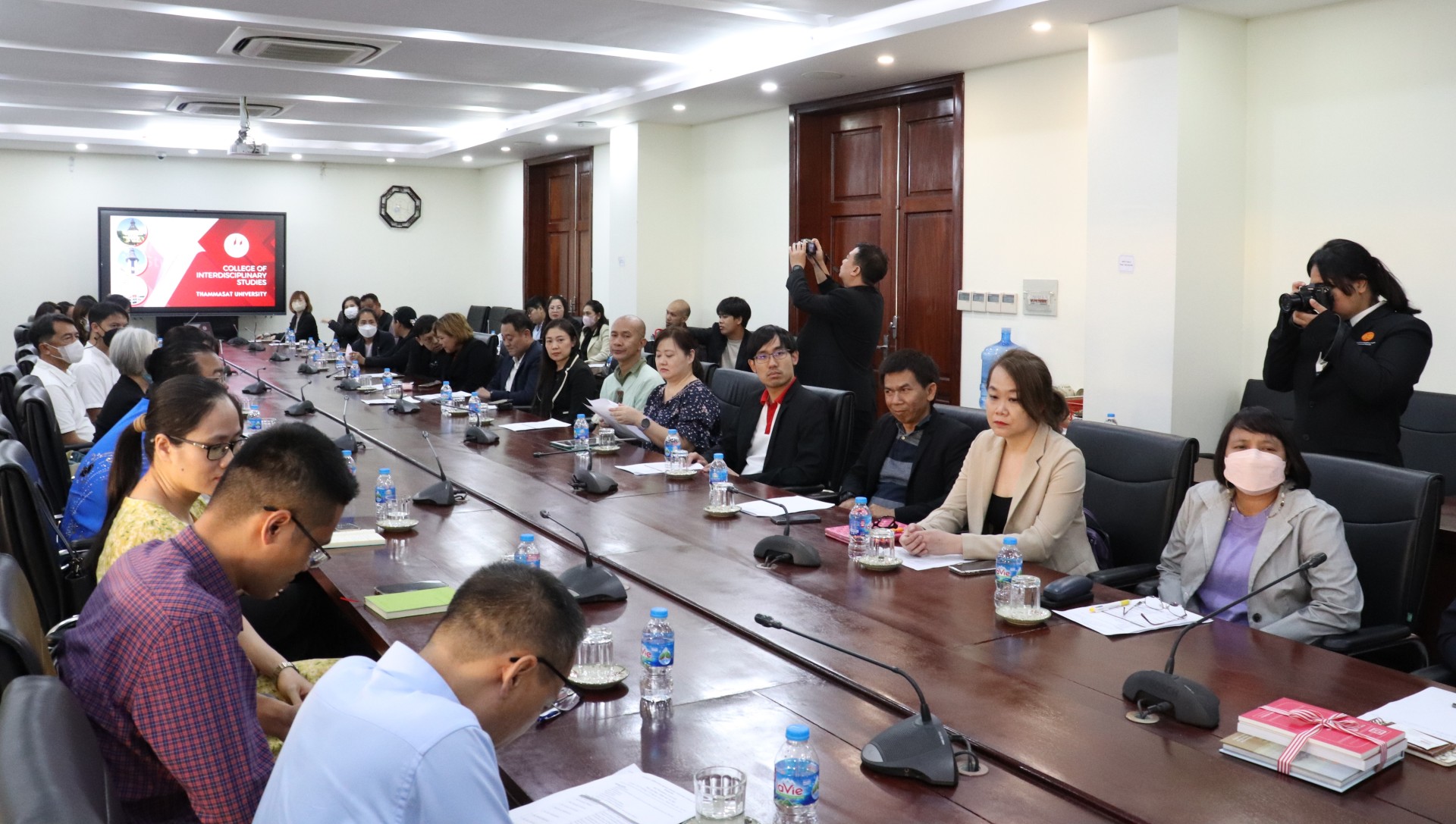
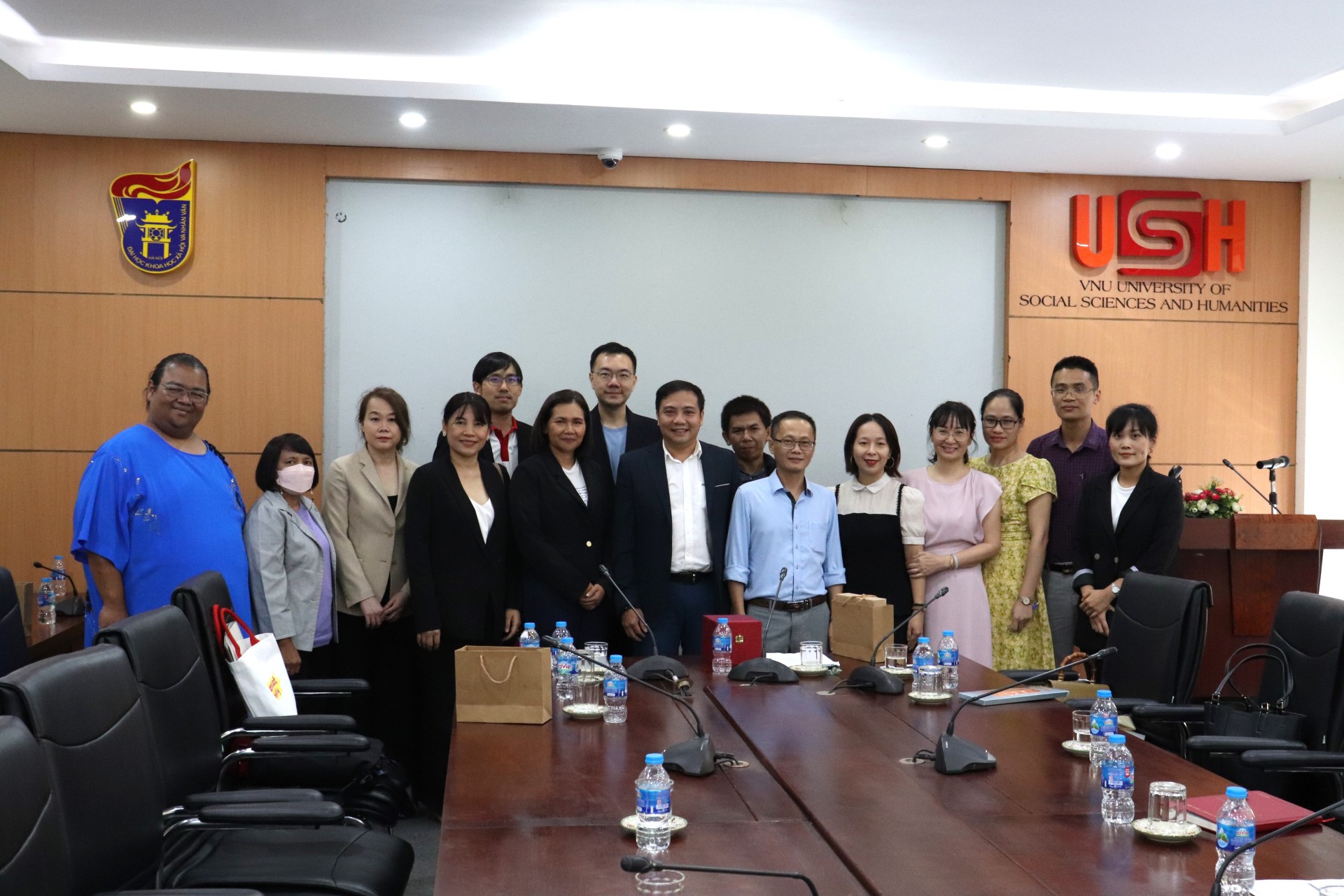
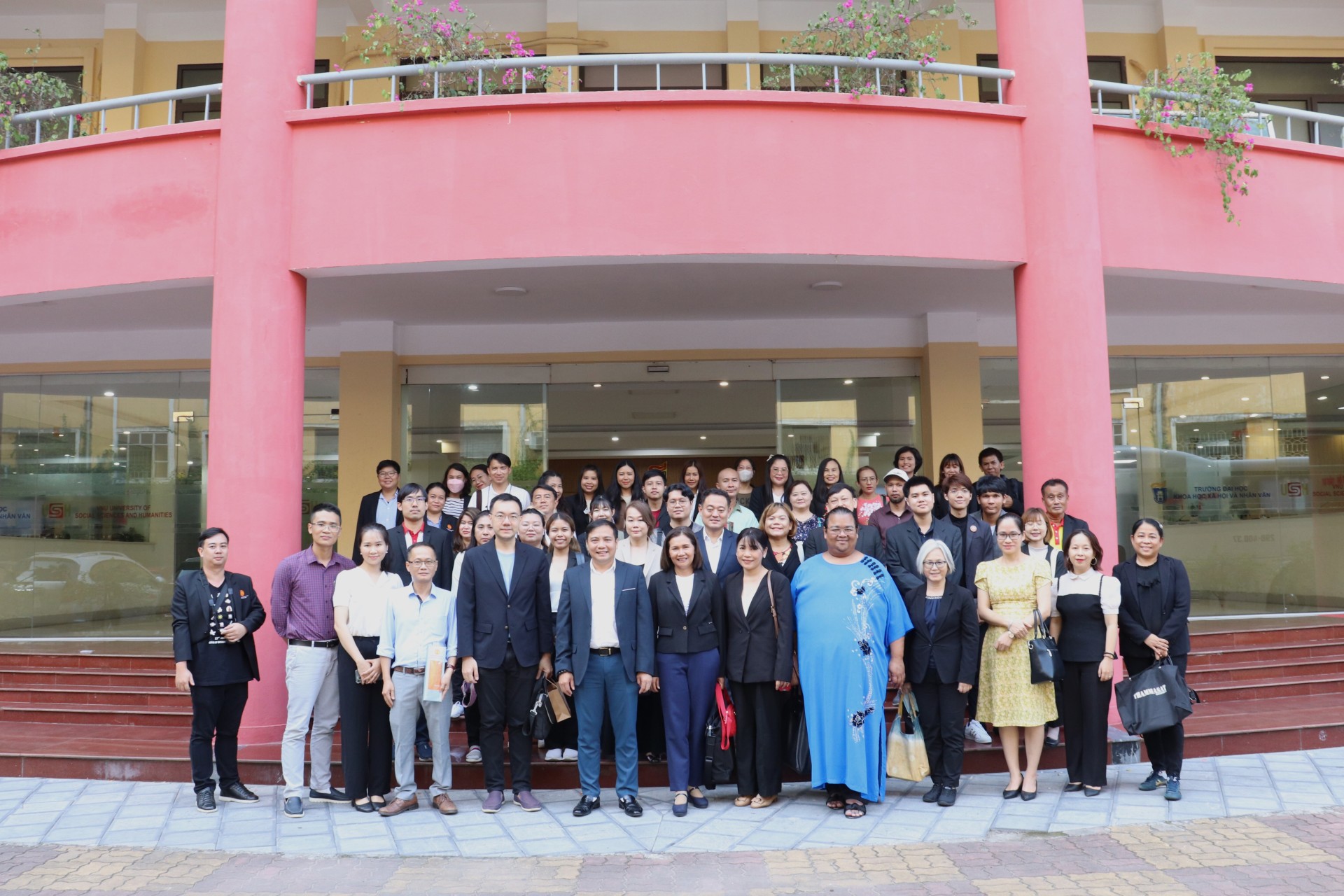
Related news
Expanding cooperation opportunities in training and scientific research between the University of Social Sciences and Humanities and major universities in China
Developing international think tanks: Experience from the Lowy Institute (Australia)
University of Social Sciences and Humanities and Showa Women's University: Traditional and Loyal Partners
Author:Dai Huu - USSH Media
Newer news
Older news